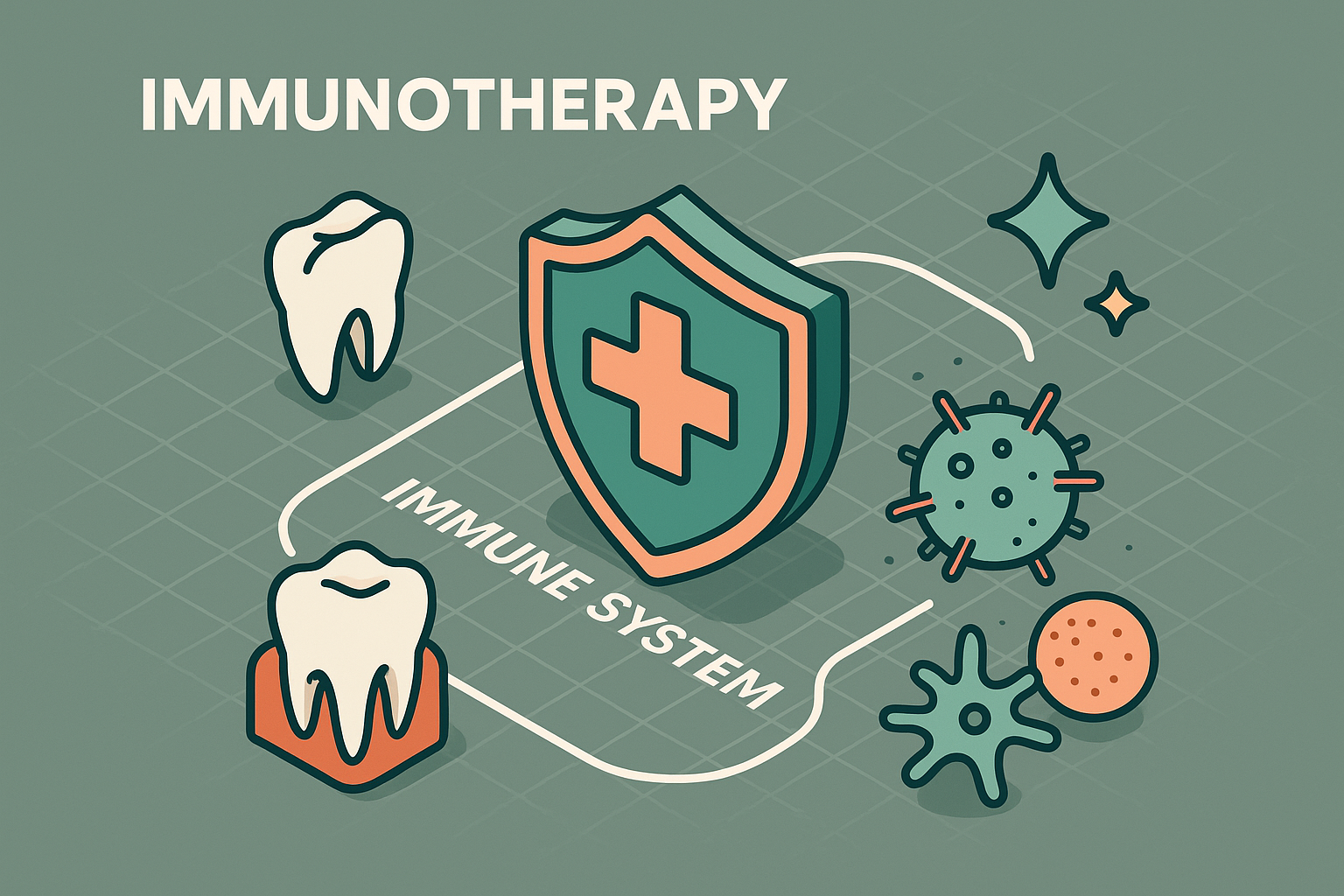Immunotherapy for Gum Disease: Innovative Approaches at Toronto Dental Clinics

Gum disease, or periodontal disease, is a prevalent issue affecting millions in Canada and ranks among the leading causes of tooth loss in adults. Traditionally, it has been treated with mechanical cleaning, antibiotics, and surgical interventions. However, the field of periodontology is entering a promising new frontier: immunotherapy.
Understanding Immunotherapy in Periodontal Care

Immunotherapy refers to strategies that target the body’s immune response instead of focusing solely on eradicating bacterial infections. In many cases of gum disease, the immune system can overreact to bacterial presence, resulting in the destruction of vital gum and bone tissue. By retraining this immune response, researchers believe it's possible to reduce tissue damage and promote more effective healing.
For instance, compounds like CCL2 have shown potential in modulating immune cells to lower inflammation while simultaneously promoting regeneration. These findings may revolutionize treatment modalities currently seen in modern dental clinics across Toronto.
Recent Developments in CCL2-Based Therapies

Current research has been focused on slow-release CCL2 microparticles. These particles are designed to promote a balanced, anti-inflammatory immune response. In preclinical models, this therapy has demonstrated:
- Reduction in alveolar bone loss
- Decreased inflammatory cytokine activity
- Increased regenerative cell behavior in tissues
This novel mechanism of action moves beyond simply killing bacterial pathogens. Instead, it's about helping the patient's own immune system react appropriately, mitigating excessive inflammation that often causes the most damage in chronic periodontitis. This evolution from microbiological eradication to immune modulation mirrors transitions seen in oncology and autoimmune care, signaling wide-reaching implications for dentistry.
Clinical Implications for Dentists and Periodontists

For dental professionals in the GTA, immunotherapy provides a compelling opportunity to address host responses in chronic cases. Although traditional techniques like scaling and root planing remain essential first-line therapies, immune-modulating options such as CCL2 may augment outcomes significantly when integrated appropriately.
Clinicians should consider how future immunotherapeutic applications could:
- Reduce the prevalence and severity of recurrent gingival inflammation
- Accelerate soft-tissue and periodontal ligament healing
- Help conserve alveolar bone, supporting dental implant stability
- Minimize invasive periodontal surgeries
The use of slow-release delivery systems aligns with emerging best practices in sustained therapeutic exposure, enhancing convenience and clinical manageability.
Considerations and Future Directions

While enthusiasm around immunotherapy is growing, most treatments—including those using CCL2—are still in the preclinical or early clinical research phases. Full-scale adoption will require multi-phase human trials that demonstrate efficacy, safety, and cost-effectiveness within diverse populations.
Moreover, clinicians must weigh the logistics of integrating new therapies within practice management systems. Considerations include storage logistics, patient eligibility assessments, insurance billing codes, and staff training needs. It’s prudent to begin conversations with local health networks and suppliers like EBIKO Dental for timely updates on product pipelines and continuing education resources.
The Connection Between Oral and Systemic Health

Canadian dentists—particularly in urban hubs like Toronto—are increasingly recognizing the systemic consequences of gum disease. Chronic periodontitis is not just a localized inflammatory condition but may play a role in systemic disorders such as:
- Cardiovascular disease
- Diabetes mellitus
- Adverse pregnancy outcomes
- Respiratory infections
Immunotherapy’s potential in controlling oral inflammation may offer benefits that resonate beyond the oral cavity. For multidisciplinary clinics, this brings exciting prospects for integrated health programming.
Pioneering a New Era in Periodontal Care

Toronto-based dental professionals are in a strong position to lead both research and clinical adoption of immunotherapy for gum disease. By aligning with the latest developments, including options supported through companies like EBIKO Dental, clinics can expand their service offerings while maintaining evidence-based standards.
A multi-pronged approach that combines immunotherapy with proven methods such as mechanical debridement, proper oral hygiene training, and ongoing patient monitoring offers the most robust platform for long-term success in managing periodontal disease. As research paves the way for product availability and regulatory approval in Canada, staying updated will empower your practice and elevate patient care outcomes.

